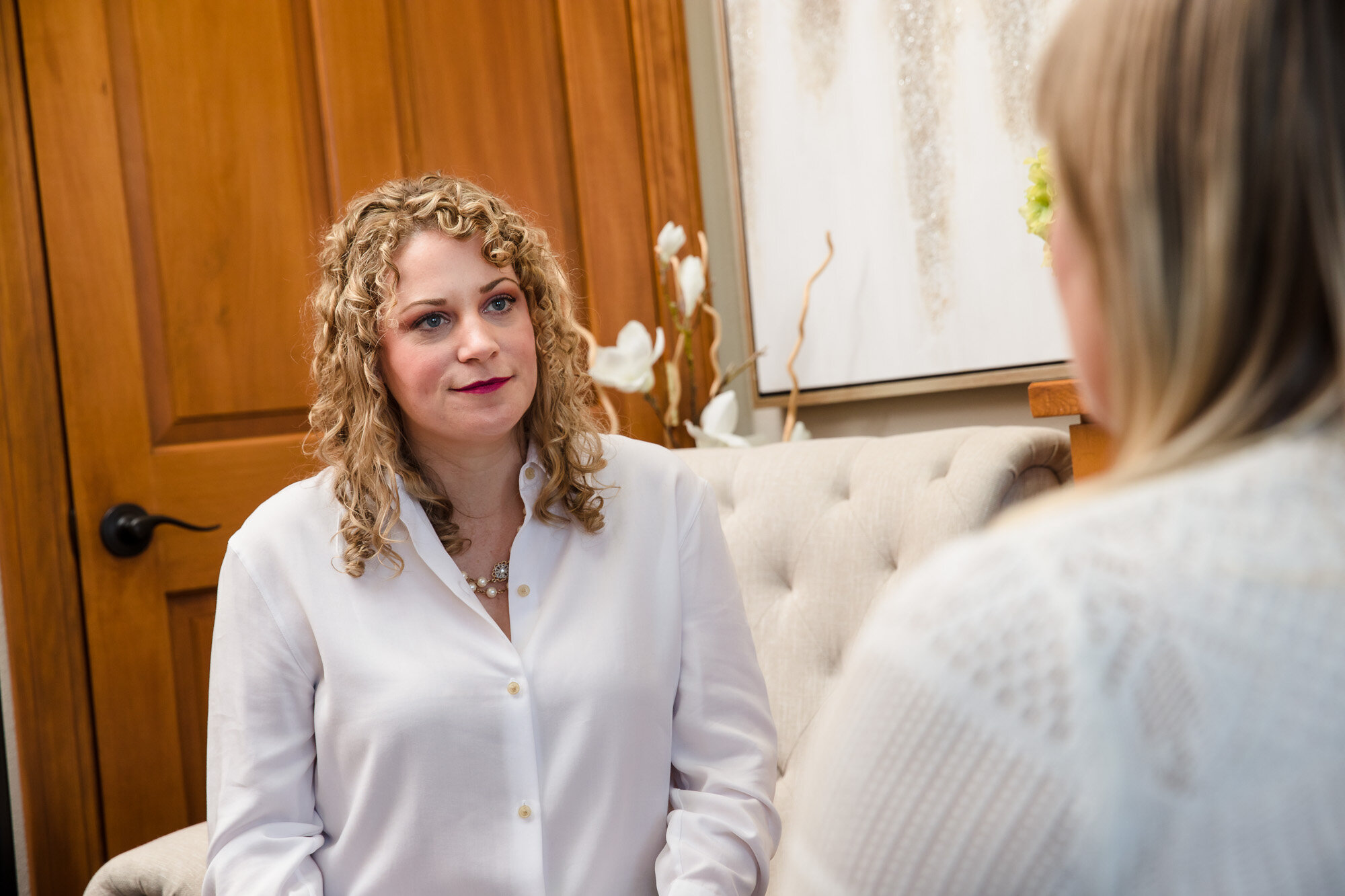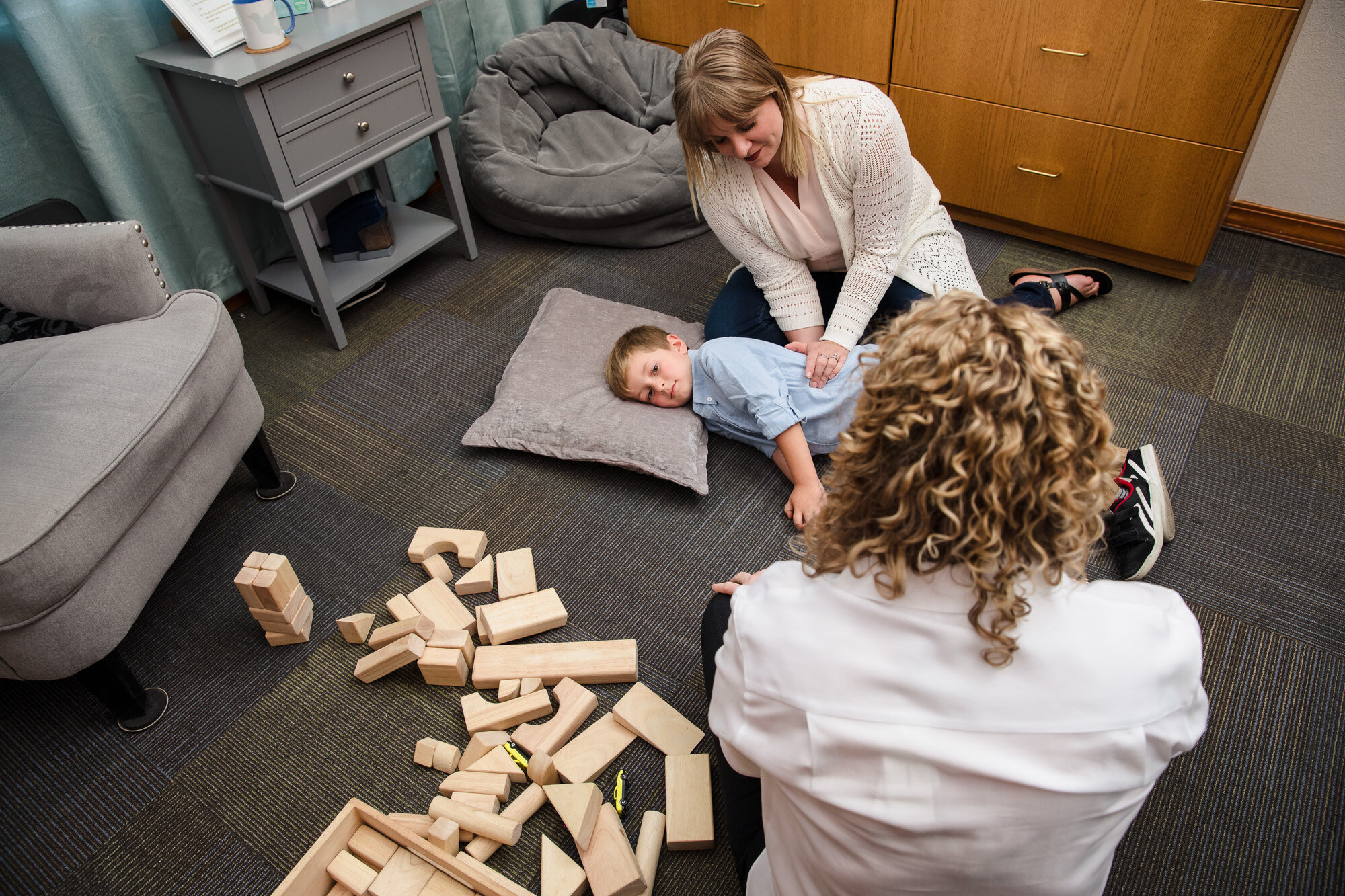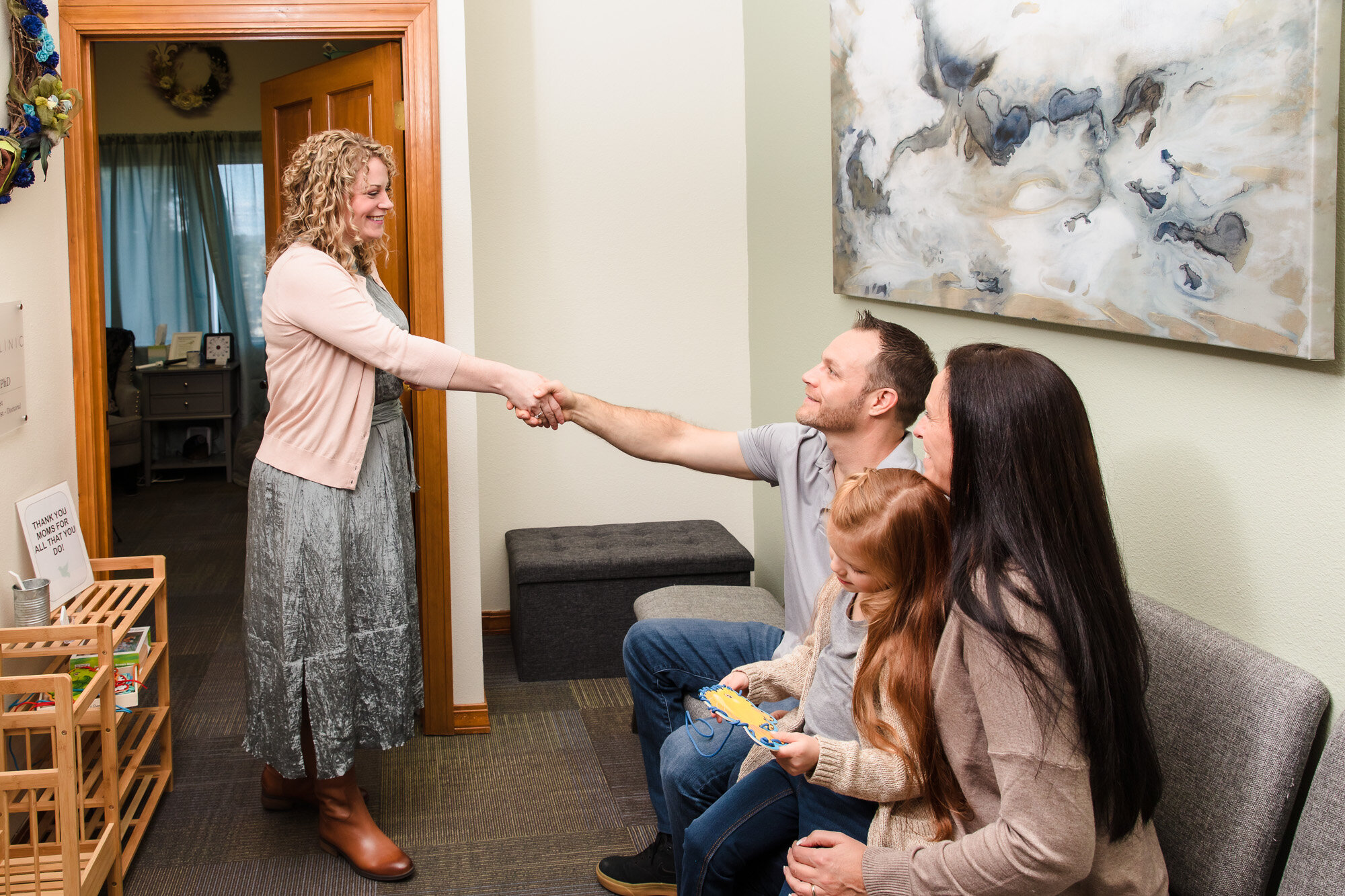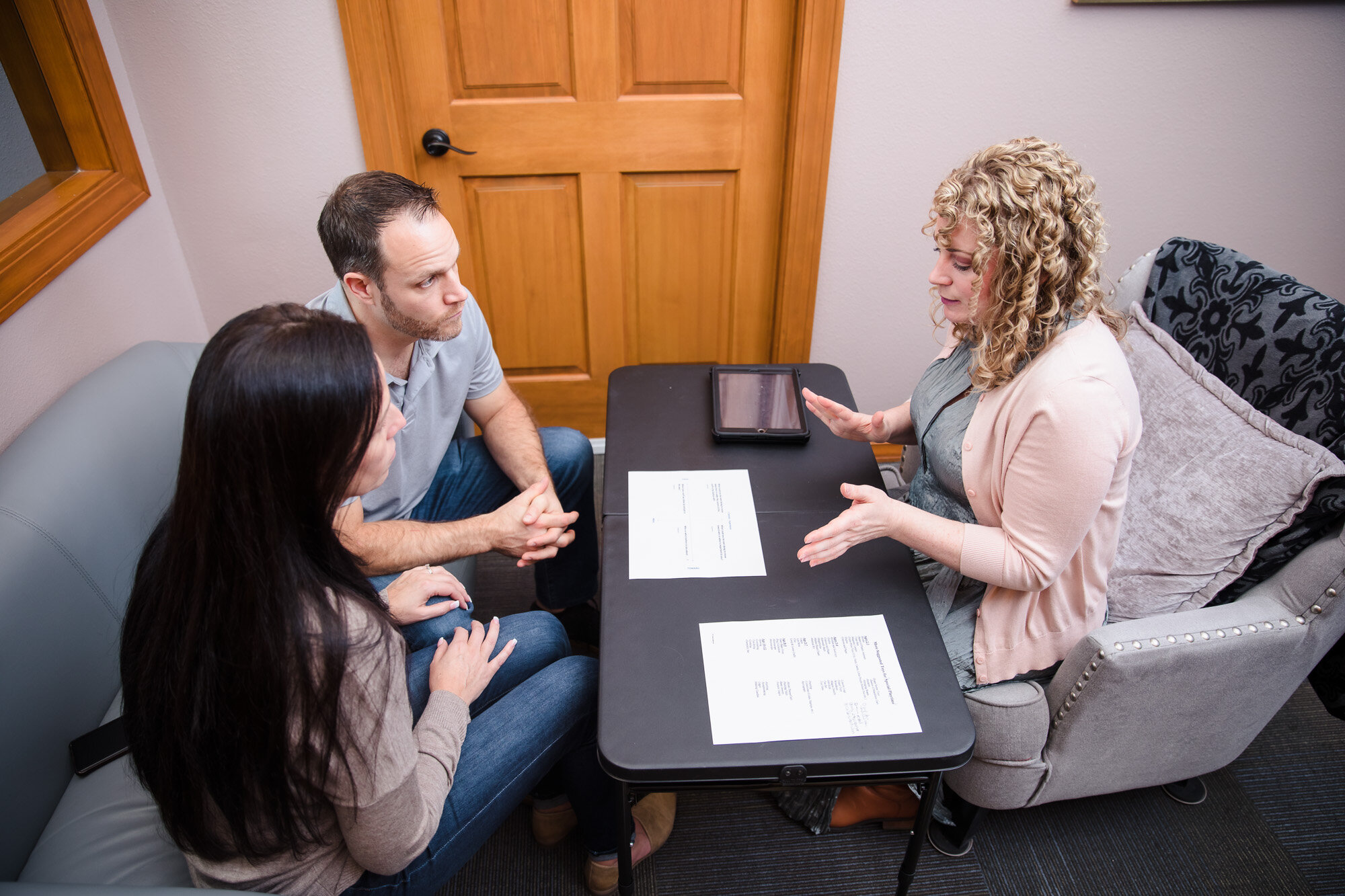Neuropsychological Assessment Services
All neuropsychological evaluations are individualized to answer the family’s concerns. Flexible scheduling and behavior strategies are used to get the most valid results from each child and to help your child have a positive experience with testing.
Dr. Hayward is trained as a school psychologist at the doctoral level, which means she has intensive training with rendering medical diagnoses in child mental health concerns and is able to collect data across the various environments in which children live, learn, and play. She has specialty training and experience in assessing:
autism spectrum disorder, in preschoolers, children, and adults
ADHD, or ADD
intellectual disability, and developmental delays
learning disabilities, such as dyslexia, dysgraphia, and specific learning disabilities in math, reading comprehension, etc.
Behavioral disorders, such as Oppositional Defiant Disorder
Anxiety, such as social, separation, selective mutism, panic
depression, including in young children, Disruptive Mood Dysregulation Disorder, and providing specific recommendations such as creating and using safety plans for high risk behaviors, etc.
Other neurodevelopmental disorders, such as language and movement disorders
Trauma related disorders, such as Reactive Attachment Disorder, Disinhibited Social Engagement Disorder, and PTSD
A neuropsychological evaluation looks at cognitive, language, executive functioning, social skills, and emotional functioning. Many times the diagnoses being considered during these evaluations are developmental in nature, or they can result from trauma or other types of life experiences.
A psychoeducational evaluation goes beyond psychological or neuropsychological evaluation by collecting interviews with teachers and pediatricians, as needed, gathering observations or data from the classroom, and providing recommendations that align with IDEA, the law that schools use to determine which services a child gets. It brings together the medical and educational worlds to best help your child.
Dr. Hayward uses the ADOS-II along with other measures to ensure a high quality autism evaluation. She is a Washington Center of Excellence for autism diagnosis. She also completes trauma evaluations with young children, using child-friendly approaches to determine the presence of PTSD, Reactive Attachment Disorder, etc.
Assessment Process
The assessment process is a collaborative process between the patient, their caregiver or significant others, and Dr. Hayward.
Additional information is collected from other medical providers, teachers, assessment data, and record reviews. This assessment approach allows for patterns in a person’s strengths and weaknesses to be seen.
Dr. Hayward’s goal is to identify strengths and weaknesses across the different contexts in which a person lives. For example, a child who goes to preschool, home, and play dates with friends likely exhibits some similar and some different behaviors in each of those environments.
It’s important to understand how his strengths and weaknesses change in each of those contexts. This contextual information will inform the evidence-based recommendations given.
After completing the intake interview with you and your child, and reviewing collateral information from records or interviews with important others, assessment data is collected through in-person testing. This data allows Dr. Hayward to compare your child’s performance in a variety of areas to other children of the same age. This gives an estimation of how well your child might be doing and also how impairing a particular behavior or symptom might be for your child.
Assessment sessions are typically between one and four hours in duration depending on the age of the child.
Assessment can last up to twelve hours for an evaluation. Many times Dr. Hayward will break down the assessment across multiple sessions in order to get the best performance of the person.
It’s important for the person being assessed to come in well rested, well fed, and feeling their best. When a person, especially a child, comes in for testing not feeling their best, the testing result may reflect this tiredness or irritability rather than the construct we are attempting to measure.
Assessment results are utilized to render diagnoses, which can be long-standing across a person’s life. Additionally the diagnoses rendered can lead to interventions that are given to the child for the next several months or even years.
Many children are placed in special services for the duration of their childhood based off the testing results of these assessments. It is important that the assessment process be given utmost care so that validity of the testing is maintained.
After all data is collected, Dr. Hayward analyzes the data to find patterns of impairment. She uses the DSM-5, the standard diagnostic manual in the United States, to determine if a person meets criteria for a diagnosis. Her recommendations are based off of research for any diagnoses given, suggested categories of disability to be considered by IEP teams (per IDEIA), and the contextual strengths and limitations of the person being assessed. For instance, if your family lives in a rural setting, giving recommendations for a specialist who is unavailable to you may not be helpful. Dr. Hayward might instead recommend that the parent and school consider training in a program with good evidence for improving the problem area of the child. Lastly, Dr. Hayward gives feedback about behavior insights and patterns observed and/or reported throughout the evaluation that may be maintaining or contributing to your child’s difficulties. An example of this would be anxiety and a language delay. If a child escapes using all language when in anxious social situations, they may be experiencing ever increasing delays in their language as compared to their peers. Thus, Dr. Hayward’s recommendation to improve language would include first addressing the social anxiety the child experiences.
A feedback session is given to the parent and to the child if they are developmentally mature enough to benefit from it. The testing results and recommendations are discussed at that time. This is another point of collaboration in the assessment process. Dr. Hayward will ask for the family’s opinion about how they see the diagnosis and recommendations fitting into their life and needs they might immediately predict having. These are then addressed in the feedback and in the final report.
A final report of the assessment, diagnoses, and recommendations is provided to the patient or designated caregiver within a month of the feedback.
Sometimes, families find that the diagnosis identified for their family member is life altering. The recommendations may take time to fully integrate into your daily life. A second follow up appointment about eight weeks later is offered if requested.
This is a good chance to go over the questions the family has generated, get clarification on data and what a diagnosis means, and request guidance or updated recommendations that were unanticipated but needed to help the patient have his or her needs met.










